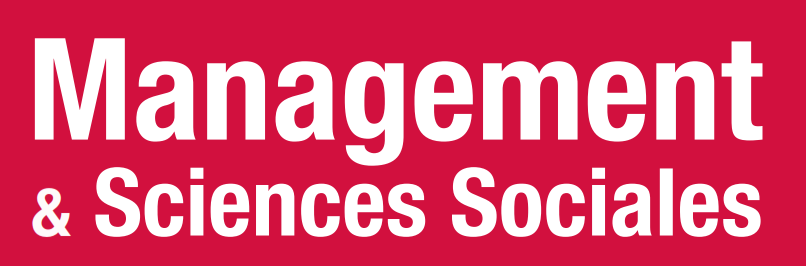Financement participatif de l’entrepreneuriat durable - une théorie postmoderne du portefeuille de Markowitz
Résumé
Die nachhaltige Finanzwirtschaft berücksichtigt bei Investitionsentscheidungen in gewissem Maße ökologische, soziale und Governance-Erwägungen. Sie will dem Gemeinwohl dienen, stößt jedoch auf ein theoretisches Vakuum: Das grundlegende Konzept des Gemeinnutzens ist nicht definiert und kann nicht wirtschaftlich gehandhabt werden. Standardmäßig ist das, was mit dem Gemeinwohl zu tun hat, außerfinanziell, unwissend (d.h. nicht professionell) oder sogar außerhalb der institutionellen Bankkreisläufe, wie z.B. Crowdfunding. Ziel des Artikels ist es, die Argumentation und das Entscheidungsverhalten von erfahrenen und nicht-erfahrenen Geldgebern auf einer einheitlichen theoretischen Grundlage unter verhaltensökonomischen Gesichtspunkten zu modellieren, wobei der Gemeinnutzen die Zufriedenheit (vs. Unzufriedenheit) oder das Wohlbefinden (vs. Unwohlsein) misst, die eine größere Anzahl von Menschen aus dem Konsum oder der Erlangung von Gemeinwohl durch eine kleinere Anzahl von Menschen zieht. Er ist daher relativ zu verstehen, als ein ursprünglicher Nutzen aus einer Zeit, in der dies Teil des Überlebens der Spezies war und das Eigentum noch nicht begonnen hatte, das Gemeinwohl zu bedrohen und seinen Untergang herbeizuführen (Tragedy of the commons). Durch die Verknüpfung mit der modernen Portfoliotheorie von Markowitz (1952) entsteht eine postmoderne Version, die im Dienste einer nachhaltigen Finanzwirtschaft steht und im Bereich des nachhaltigen Unternehmertums erprobt wurde.
Sustainable finance integrates, to one degree or another, environmental, social and governance considerations into investment decisions. It works for the common good but faces a theoretical gap: the foundational concept of common utility makes no economic sense. By default, common good relates to extra-financial reporting, not-sophisticated investors and outside banking channels trading (such as crowdfunding). The intent of the paper is, from a behavioral economics perspective, to model the reasoning and decision behaviors of both sophisticated and not-sophisticated investors, while common utility measures the satisfaction (vs dissatisfaction) or welfare (vs discomfort) that the greatest number finds in the consumption or the obtaining of the common good by a small number. Common utility can therefore be understood relatively, as an original utility at stake at a time when it ensured the survival of mankind and when property had not yet begun to threaten the common good and cause its downfall (Tragedy of the commons). Its coupling with Markowitz’s modern portfolio theory gives a postmodern version of it, at the service of sustainable finance and with experiments in sustainable entrepreneurship.
La Finance durable prend en compte à un degré ou un autre, les considérations environnementales, sociales et de gouvernance dans les décisions d’investissement. Elle se veut au service du bien commun, mais se heurte à un vide théorique : le concept fondationnel d’utilité commune n’est pas défini et ne peut être manié économiquement. Par défaut, ce qui concerne le bien commun est extra-financier, non-averti (i.e. non-professionnel), voire en dehors des circuits bancaires institutionnels, à l’instar du crowdfunding. L’objet de l’article est de modéliser, sous l’angle de l’économie comportementale, les raisonnements et les comportements décisionnels des financeurs avertis et non-avertis, sur une base théorique unifiée, l’utilité commune mesurant la satisfaction (vs insatisfaction) ou le bien-être (vs mal-être) que le plus grand nombre retire de la consommation ou de l’obtention de bien commun par un petit nombre. Elle se comprend dès lors de manière relative, comme une utilité originelle, d’un temps où cela participait de la survie de l’espèce et où la propriété n’avait pas encore commencé à menacer le bien commun et causé sa chute (Tragedy of the commons). Son couplage avec la théorie moderne du portefeuille de Markowitz (1952) en donne une version postmoderne, au service d’une finance durable et qui a fait l’objet d’expérimentations en entrepreneuriat durable.
La finanza sostenibile tiene conto, in una misura o nell'altra, di considerazioni ambientali, sociali e di governance nelle decisioni di investimento. Mira a servire il bene comune, ma si scontra con un vuoto teorico: il concetto fondamentale di utilità comune non è definito e non può essere gestito economicamente. Per default, ciò che riguarda il bene comune è extra-finanziario, non informato (cioè non professionale), o addirittura al di fuori dei circuiti bancari istituzionali, sull'esempio del crowdfunding. L'obiettivo dell'articolo è modellare, dal punto di vista dell'economia comportamentale, il ragionamento e il comportamento decisionale di finanziatori informati e non informati, su una base teorica unificata, con l'utilità comune che misura la soddisfazione (vs. insoddisfazione) o il benessere (vs. disagio) che la maggioranza trae dal consumo o dall'acquisizione di beni comuni da parte di un piccolo numero. Può quindi essere intesa in termini relativi, come utilità originaria, di un'epoca in cui questa faceva parte della sopravvivenza della specie e in cui la proprietà non aveva ancora iniziato a minacciare il bene comune e a causarne la caduta (Tragedia dei beni comuni). Se abbinata alla moderna teoria del portafoglio di Markowitz (1952), ne deriva una versione postmoderna che serve alla finanza sostenibile e che è stata oggetto di esperimenti nell'ambito dell'imprenditoria sostenibile.
| Origine | Fichiers produits par l'(les) auteur(s) |
|---|---|
| licence |


